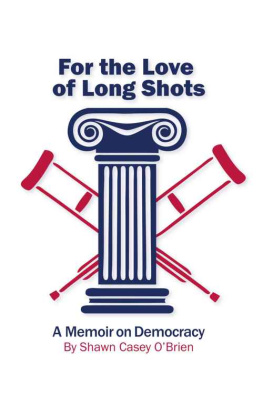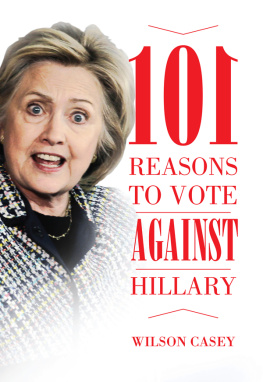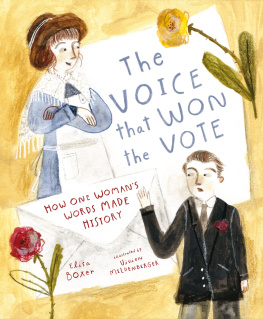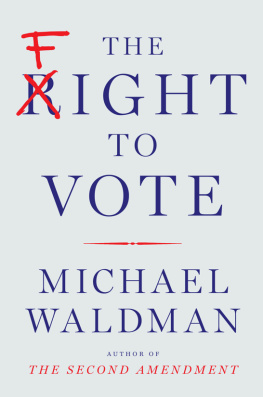For the Love of Long Shots: A Memoir on Democracy
For the Love of Long Shots:
A Memoir on Democracy
by
Shawn Casey O'Brien
For the Love of Long Shots: A Memoir on Democracy
E-book Edition
Copyright 2014. All rights reserved.
Cover art by Martin Sweeney.
Photograph of Shawn by Slobodan Dimitrov.
Published by Pumpkin Seed Publishing
c/o Evan "Bones" Kendall
PO Box 803, Whittier, CA 90608
This book is a work of art. The story is based on actual events in the life of the author, but artistic license has been taken. Names have been changed and character likenesses have been altered.
E-book ISBN: 978-0-9798934-7-6
Print ISBN: 978-0-9798934-8-3
For Sacha Lilie,
Her Grandmothers, Marie and Tessa,
and her Great Aunt Julia
It is the mothers who teach the first lesson of democracy.
They teach us to count.
You never know when your lunch counter moment is going to come. I sure didn't see mine coming, nor was I looking for a fight on that otherwise gentle sunny morning at the beach. All I was asking for was a cup of coffee while awaiting my friend. Instead, I was being served up an all too typical bully, one who was busy exhibiting the true smallness of his spirit first thing in the morning...which was probably his worst mistake. I mean if you're going to give me grief in the morning, at least have the good graces to let me have a cup of coffee first.
There was that much sought after cup of coffee and then there was the chain, the chain that was now denying me the ability to park my sputtering Ford Granada in the caf's handicapped parking spot, the very spot that was next to the walk-up window where I was supposed to order that simple, soothing cup of coffee. If they'd unlocked the chain and allowed me to use their handicapped-parking zone, none of what was about to pass would have occurred. None of it.
But, then, bullies never think of the true consequences of their actions or how it's their small, petty insults that often lead to much bigger, more important battles. Just like the lunch counter sit-in at a Greensboro, North Carolina Woolworth's in 1960 or Rosa Parks refusing to give up her bus seat, often it is the small indignities that ignite major movements of change.
At that moment though, I wasn't thinking that my simple request would have anywhere near those kinds of hallowed outcomes -- I was just waiting on my friend Sal and wanted a cup of mighty java while doing so.
Looking back, I now think it ironic that's exactly what those four brave young men in Greensboro had ordered back on that February afternoon in 1960. A cup of coffee. Like them, I too was more than willing to pay for that privilege.
Unlike them I hadn't set out to be a glorious and necessary troublemaker. For they had been picked specifically to provoke a non-violent battle with the whole of the segregated South, a fight that would change this country forever. I just wanted to park my car in a handicapped designated zone and have a cup of coffee. The only thing I was interested in changing that early morning was my still groggy consciousness.
My consciousness did get changed that morning -- just not in a way I anticipated.
"Why chain off a blue zone during business hours?" I wondered as I got out of my car, grabbed my crutches from the back seat, and walked up to the wooden counter that hung off the side of the walk-up window, the counter that would, in large part, change everything, the counter where I made my simple, appropriate request.
"Coffee please, my friend," I said to the server.
Automatically he put a cup on that counter in front of me and filled it. He was Hispanic, a young man, working hard for little money. Just one pleasant peasant giving another a cup of coffee.
From my fatigues, I pulled out a dollar and tossed it on the counter top. "Thanks," I said as he grabbed the buck. "And would you please unlock the handicapped parking spot?" I asked, pointing at it with my crutch to emphasize the fact that I am one of the anointed.
His smile went suddenly sad, and his eyes rolled up at me the way people do whenever they have to do or say something that they don't particularly want to say or do. When he told me, "No, no, seor," I could see he was not proud of it.
Again I thought it weird, but, then, perhaps it was a communication problem. With my heaving Ford Granada doing its own form of percolating in the narrow alleyway of Venice Beach, this was no time for misunderstandings.
"Manager, por favor," I said, hoping to speed things up.
Off he went as I poured a little cream in my coffee and wondered if my attempt at Spanish was in bad taste.
As I stood there stirring my coffee, I slowly surveyed my surroundings. Venice Beach, or "Venice of America" as it's better known to the rest of the world. It was my most agreeable, if not offbeat neighborhood. I took a deep breath of the ocean air and watched some Asian women in bathing suits Rollerblade down the boardwalk with the same rhythmic grace as the deep blue Pacific behind them.
I exhaled thoroughly and contemplated how I was going to get my steaming cup of coffee over to one of those ubiquitous plastic white table and chair sets that one too many home improvement warehouses have foisted on us. My lower back hurt just looking at them, but I figured I could endure breakfast. Once again, hunger pangs beat out physical pain. It was, after all, a picture postcard day with a breeze that would keep both the acrobats on the boardwalk, as well as the ones on crutches, cool, calm, and dry. "Count your blessings," I reminded myself, "you live here."
I blew on my coffee with some contentment. I treasured my waterfront neighborhood, having lived nowhere else as an adult, and I was happy to have one more blue zone in it. It would make this caf an even cooler place to breakfast with friends and family. If I could just get the heaving Granada parked, my contentment would be complete.
I was about to sip a little off the top of the cup in preparation for a landing at a nearby table, when John the manager came around the corner on the other side of the pick-up window.
He sported greasy blond hair and bad teeth. From the skeletal remains of John, one could tell that he worked at a hamburger stand...and probably did a little too much speed. He was agitated from the start.
"What's the problem?" he asked roughly, wiping his hands on a dirty dishrag.
"No problem," I answered, setting the coffee back down on the counter. "I just wanted to use your handicapped parking spot and have a little breakfast."
"Can't do that," he said.
"No, I'm a patron," I explained, pointing to my cup of coffee in front of us.
"This is private property. No one's allowed to use the parking lot," he said putting an even nastier edge on his voice. Shades of the Greensboro 4.
I dropped my head in disbelief, keeping one eye squarely on him as the BS detector in the back of my brain went off like the bell of a prizefight. In spite of all my previous contentment, I felt the frustrated boxer in me gearing up to dispute this clown.
"This is a public accommodation," I said with all necessary emphasis. "I am the public -- that is a handicapped parking spot," I said, pointing to it again. "I'm handicapped," I said indignantly, stepping back so that the whiz kid could get a full view of my magic sticks. "And that spot was put in place to facilitate handicapped citizens' patronage of this establishment. To give us an equal opportunity to have a cup of coffee at this counter," thumping my index finger on it for emphasis. I ended with a very irritated, "Thank you very much."
Okay, I was perturbed and sarcastic, but under the circumstances, I didn't see that as such a sin. After all my mother had always taught me to say thank you. "Even to your adversaries -- as they often bring out the best in you," she told me more than once. She's also the one who taught me about the Greensboro 4 and Mother Parks and Civil Rights.






